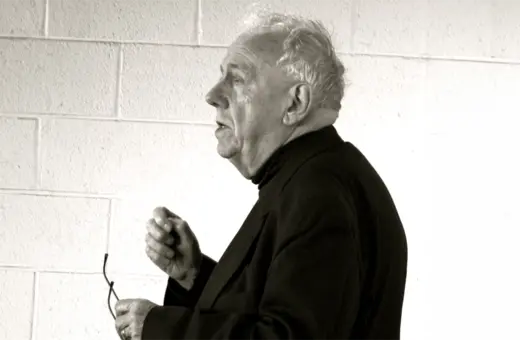Good and evil, right and wrong. In our post-modern world, it can feel like such objective characteristics have no place in society – “evil”, in particular, feels like too strong a phrase to attribute to anything or anyone in these relativist times. And yet it continues to beguile us in fiction and in real life, just as much as we respond to the struggle between heroes and villains in both real and imagined narratives. The question is, why? And is this deeply-held notion of “black-and-white” morality a necessity, or a mistake?
These are the central questions of our latest debates, where ethics is interrogated. In Dancing with the Devil featuring Cambridge Psychologist Simon Baron-Cohen, philosopher Rebecca Roache and Peter Dews, author of The Idea of Evil, the nature of evil is examined. While in The Good, The Bad and The Controversial, Spiked Online Editor Brendan O'Neill, NCH philosopher Naomi Goulder, journalist Sameer Rahim, and Coco de Mer founder Sam Roddick pick apart morality itself.
But if we’re talking about ethics, and the unethical in particular, then it’s just as worth looking at the light side of things as it is the dark. So what do our world-leading philosophers, writers, scientists, historians, and politicians have to say about being good? For their perspectives on the values of virtue, look no further.
1 ‘It’s rewarding to be good, not a chore’ – Mark Vernon | A former clergyman, now writer, teacher and psychotherapist. His latest book is The Idler Guide To Ancient Philosophy
"We tend to think that goodness is a moral judgment. She is a good child, someone might say. But the ancients treated goodness as a quality or virtue. It's supremely desirable because it's integral to our flourishing. Goodness tastes good, really good.
Why might that matter to us? Because it might help us come to feel that goodness is a joy, not an injunction; that it lifts us up, not leaves us guilty and wanting; that it is part of becoming all that we might become… in an age starved of trust and vision – of goodness as a self-evident good – Plato can feed us."
Read How to Be Good
2 ‘We may choose to ignore evil for an easy life’ – Margaret Heffernan | Entrepreneur, CEO and author. Her book Wilful Blindness was chosen as one of Financial Times’ business books of the decade.
"Albert Speer, Hitler’s favourite architect… famously could not remember what he had known of Hitler’s final solution. And this was not because he believed himself innocent – he pleaded guilty at Nuremberg – but because, even under intense and sustained interrogation by Gitta Sereny, he simply could not remember.
Many people believed Speer lied. But Sereny considered Speer’s experience. He did know, she thought – but only enough to ensure that he looked away. After all, she explained, you have to know it’s bad to make the choice to look in the other direction.
And although most of us don’t readily identify with Speer, we do adopt similar strategies. We may carefully ignore, minimise or trivialise information that would challenge our sense of well-being or security. The partners of child abusers frequently do so; partners in adulterous marriages frequently do the same: why is the wife always the last to know? Not because the information isn’t visible but because it is visible enough for us to look in the other direction."
Read Wilful Blindness















Join the conversation